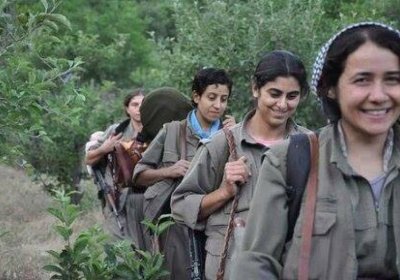It was in the autumn of 2014, only months after Islamic State (ISIS) achieved huge territorial gains inside Syria and Iraq, committing genocidal and femicidal massacres, that a revolutionary silver lining arose from the little-known town of Kobane in Syria’s north.
Having overrun Mosul, Tel Afar and Sinjar in Iraq, as well as a vast expanse of territory inside Syria, ISIS prepared to launch an attack on the north of Syria, known by Kurds as Rojava.
What ISIS did not anticipate in Kobane was that it would encounter an enemy of a different kind – an organised, political community that was ready to defend itself courageously by all means necessary, and with a worldview that turns ISIS’s death ideology on its head.


 Flag of PKK with image of Abdullah Ocalan.
Millions of Kurds view Abdullah Öcalan as their political representative. His freedom is directly linked to a democratic and peaceful solution to the war in Turkey.
Flag of PKK with image of Abdullah Ocalan.
Millions of Kurds view Abdullah Öcalan as their political representative. His freedom is directly linked to a democratic and peaceful solution to the war in Turkey.
